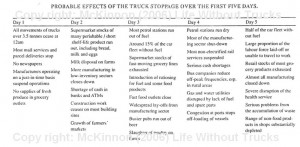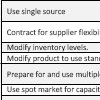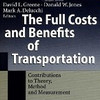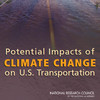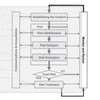 I’m not in the habit of making Friday a day for funny blog posts, but today’s article highlights a very interesting issue: Beer distribution is a sector that will be highly affected by a supply chain disruption…in the UK. You could even say that beer distribution is part of the UK critical infrastructure. At least, that’s the impression I have after reading McKinnon, Alan (2006). Life Without Trucks: The Impact of a Temporary Disruption of Road Freight Transport on a National Economy. Seriously, the article is about so much more. It shows how dependent our Just-In-Time-society has become on road transport, and what sectors that are most dependent on road transport. Transportation disruption should thus be part of any business continuity plan.
I’m not in the habit of making Friday a day for funny blog posts, but today’s article highlights a very interesting issue: Beer distribution is a sector that will be highly affected by a supply chain disruption…in the UK. You could even say that beer distribution is part of the UK critical infrastructure. At least, that’s the impression I have after reading McKinnon, Alan (2006). Life Without Trucks: The Impact of a Temporary Disruption of Road Freight Transport on a National Economy. Seriously, the article is about so much more. It shows how dependent our Just-In-Time-society has become on road transport, and what sectors that are most dependent on road transport. Transportation disruption should thus be part of any business continuity plan.
Roads Rule
The article picks up a notion I presented on this blog some time ago. Roads are perhaps more important to society and the economy than computers, because the one critical infrastructure everyone needs are roads. Unfortunately the reports I mentioned in that post are available in Norwegian only, otherwise McKinnon would surely have found them and used them as a reference.
Black Swans
McKinnon’s work is based on a reflection on several major transportation-hampering events, particularly the 1979 truck driver strike and the 200o fuel distribution blockade.
The main purpose of the research was to illustrate, to government officials, company management and the wider public, the dependence of the UK economy on the road freight sector. A subsidiary aim was to examine the process of economic degeneration that would result from the widespread dislocation of supply networks and to highlight points of maximum vulnerability in these networks.
McKinnon calls these events for Low Probability High Impact Events, or Black Swan events, as they are called in yesterday’s post on an article from the Harvard Business Review.
Scenario Analysis
The research is a forward-looking what-if scenario analysis with a backward-looking experience to rely on, using the following assumptions:
No advance warning would be given to companies or consumers. They would not, therefore, be given the opportunity to stockpile or make other contingency plans.
Products would continue to be consumed at an average rate and there would be no ‘panic buying’. If panic buying did occur, this rate of depletion could increase exponentially with the result that inventories of critical products such as fuel and groceries held at point of sale would be exhausted within a day or two.
Only trucks with a gross weight of 3.5 tonnes or more would be affected.
No Beer Today
The impacts of a transport disruption are analyzed for sectors where
distribution is exclusively or predominantly by road
delivery by road is highly time-sensitive
limited inventory is held in the supply chain
order lead times are short
the sector exerts strong influence on the level of economic activity/quality of life
This led McKinnon to investigate the following sectors: grocery retailing, food services, fuel supply, healthcare, banking, postal services, parcels, beer and waste disposal. The impact on each sector is described in detail, while more general consideration are also given to the impacts on agriculture, manufacturing industry, the construction industry, office-based services sector and Britain’s external trading links. I am not sure why he included beer here, but I guess the local pub plays a major role in many Brits’ lives.
The country grinds to a halt
The impact of a major withdrawal of transport abilities is felt almost immediately:
The level of economic activity would drop sharply in the days following the withdrawal of road transport. After a week, the country would be plunged into a deep economic and social crisis. Once the trucks starting running again, it would take several weeks for most production and distribution systems to recover. Many businesses would not survive a week-long suspension of their operations. At any given time there are many companies whose trading and cash flow positions are fragile. They would be unable to withstand even a temporary loss of business.
McKinnon summarizes the scenario in a 5-day consecutive table:
Not a very bright outlook, and very much in line with the transportation disruption impacts found in the Norwegian study I referenced above. That is why transportation is so important and why access to transportation means business continuity, while no access means business dis-continuity. That said, in the current and still economic downturn, inventory depletion is not the worst that could happen.
Related research
You can find more research publications on supply chain risk and resilience at the Supply Chain Research at Centre Cranfield University. I also recommend visiting the New Zealand Resilient Organisations Research Group (ResOrgs), a multi-disciplinary team of 17 researchers and practitioners committed to making New Zealand organisations more resilient in the face of major hazards in the natural, built and economic environments.
Reference
McKinnon, Alan (2006). Life Without Trucks: The Impact of a Temporary Disruption of Road Freight Transport on a National Economy Journal of Business Logistics, 27 (2), 227-250
Author link
- linkedin.com: Alan McKinnon
Read online
- findarticles.com: Life Without Trucks
Related
- husdal.com: Are Roads more important than Computers
- husdal.com: Black Swan Events
- husdal.com: Supply Chain Resilience

